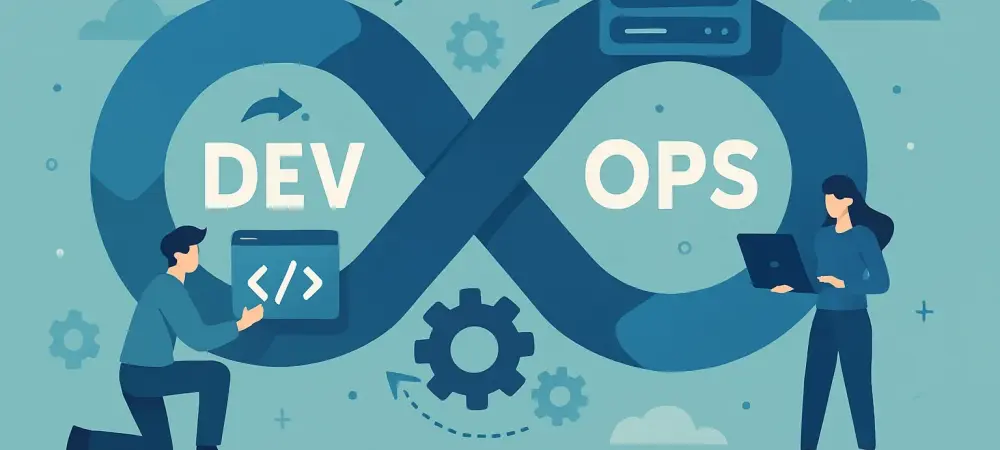In recent years, the rapidly changing landscape of software development has witnessed a notable shift from traditional DevOps methodologies to the emerging discipline of platform engineering. As digital platforms become central to business strategies, the efficiency and consistency of software delivery processes are more critical than ever. This transition urges software companies to explore innovative frameworks that not only streamline workflows but also address the complexities inherent in modern infrastructural environments. The intriguing blend of DevOps principles with platform engineering practices raises questions about the relevance of DevOps, prompting a deeper exploration of platform engineering’s role within this dynamic domain.
Defining Platform Engineering: An Operational Revolution
The Fundamentals of Platform Engineering
Platform engineering is an emerging field focusing on building and maintaining robust software delivery infrastructures, ensuring workflows are consistent and efficient. It seeks to expand the foundational principles established by DevOps, emphasizing the creation of seamless environments for software development. The introduction of Internal Developer Platforms (IDPs) marks a critical advancement in this discipline, offering developers self-service capabilities for deploying applications and configuring necessary infrastructure. By decentralizing processes traditionally handled by operations teams, platform engineering minimizes reliance on external teams, thus accelerating the entire software lifecycle and addressing time-to-market demands.
Challenges and Considerations in Platform Engineering
With the advantages of platform engineering come notable challenges that demand attention. The implementation of centralized platforms potentially introduces the very inefficiencies it aims to eradicate, such as development bottlenecks and inconsistencies. As engineers shape these platforms, they run the risk of imposing limitations on diverse development needs. An effective platform must strike a balance, offering universality while retaining flexibility to meet disparate requirements across various teams. Additionally, creating and maintaining these platforms necessitates significant commitment, given the intricacies and technical overhead entailed in their orchestration. The journey from DevOps to platform engineering, therefore, requires thoughtful strategies to mitigate unintended consequences.
Comparing DevOps and Platform Engineering
DevOps Collaboration vs. Platform Engineering Structure
At the core of the debate regarding the obsolescence of DevOps lies the comparison between its focus on fostering collaboration and platform engineering’s emphasis on structural efficiency. DevOps has traditionally highlighted the importance of bridging gaps between development and operations teams, facilitating continuous integration and continuous delivery. While this collaborative ethos remains vital, platform engineering furthers this concept by equipping teams with structured tools and frameworks that simplify development processes. The implementation of platform engineering, often following the successful adoption of DevOps principles, enhances agility within large organizations and fosters an environment where development teams are empowered to innovate without being mired in operational complexities.
Industry Perspectives on DevOps and Platform Engineering
In the ongoing discourse around DevOps and platform engineering, industry experts share insights that illuminate the nuances between these methodologies. While some argue that DevOps retains its relevance, others underscore the transformative potential of platform engineering. Notably, platform engineering lends itself to aligning with a product-focused mindset, where platform teams strive to deliver value to internal stakeholders, such as application developers. However, the allure of constantly shifting technological trends poses a risk that teams may lose focus on underlying objectives. The challenge then is to evaluate the platform engineering framework critically, ensuring that its adoption aligns with genuine operational needs rather than distractions.
The Future Trajectory of Software Development
Bridging the Gap: From Traditional DevOps to Platform Engineering
The transition from DevOps to platform engineering signifies a broader shift in the software development landscape, influenced by evolving technical demands and business imperatives. As the popularity of platform-centric development grows, organizations need to grapple with an array of considerations, including the integration of platform engineering practices into existing frameworks. The role of platform engineering extends beyond tool management; it encompasses defining goals, enhancing efficiency, maintaining security, and continually aligning platform design with developer requirements. This multidimensional approach is crucial for fostering environments that keep pace with industry standards while delivering tangible benefits to development teams.
Cultural Implications and Strategic Considerations
In the past few years, the field of software development has undergone significant transformation, marked by a shift from traditional DevOps methodologies to the emerging area known as platform engineering. With digital platforms increasingly becoming vital components of business strategies, ensuring the efficiency and consistency of software delivery processes is crucial. This shift urges software companies to examine new and innovative frameworks that not only simplify workflows but also tackle the complexities of today’s modern infrastructural challenges. The integration of DevOps principles with platform engineering practices creates an interesting dynamic, sparking questions about the continued relevance of DevOps. This prompts a more in-depth investigation into the role platform engineering plays within such a rapidly evolving domain. Companies must now determine whether platform engineering will redefine how software is delivered and managed, providing solutions that address current demands for speed and reliability while maintaining the flexibility to adapt to future needs.

